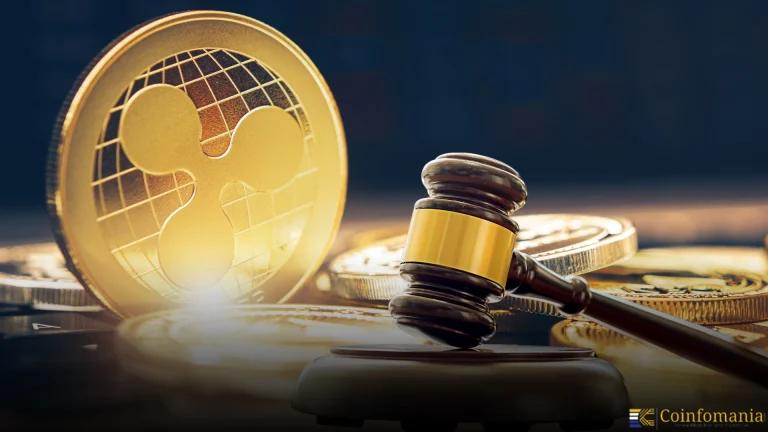Cryptocurrency Regulation in Bolivia
Cryptocurrency is experiencing a global shift that shows no signs of stopping, and Bolivia, as a country, is not embracing this trend. It has always banned crypto as a tender under the threat of dispersive effects on the Boliviano (BOB), capital flight, and illicit financial flows. In contrast to Argentina and Brazil, where cryptocurrencies are […]

Cryptocurrency is experiencing a global shift that shows no signs of stopping, and Bolivia, as a country, is not embracing this trend. It has always banned crypto as a tender under the threat of dispersive effects on the Boliviano (BOB), capital flight, and illicit financial flows. In contrast to Argentina and Brazil, where cryptocurrencies are mainly used as hedging instruments against inflation, strict restrictions stand around the only regulated channels in Bolivia that trade but do not allow crypto payments by businesses.
Bolivia’s restrictions on cryptocurrency have pushed consumers into unregulated P2P markets for remittance and inflation-hedging vehicles, while businesses suffer the penalties of engaging in crypto transactions. As a result, they are out of the system of international digital commerce. Investors find their access to banks restricted to ones blocking customers from using offshore exchanges, creating a shadow banking system that lies beyond government oversight.
While the government argues these measures protect Bolivia’s fragile economy, critics say they stifle financial innovation and exclude the country from blockchain’s economic benefits. This blog examines Bolivia’s evolving crypto policies, the challenges they create, and whether reforms could emerge in the future.
Historical Context
Bolivia’s crypto journey has been marked by resistance and gradual adaptation:
- 2014: BCB banned cryptocurrencies outright, citing financial stability risks.
- 2020: The government eased its rules a bit, allowing crypto trading but not recognizing it as official money.
- 2024-2025: Bolivia brought in rules for Virtual Asset Service Providers (VASPs), making exchanges register with financial authorities.
Despite these changes, Bolivia remains one of the strictest countries in Latin America regarding crypto payments.
Regulatory Framework
Bolivia maintains a restrictive but an evolution in cryptocurrency standing because the access remains very limited in terms of legality against very stringent financial regulation. As with the 2025 framework, crypto trading should only be through licensed platforms, while an all-out ban on crypto payments stays in place with the government that indicates its ongoing concern with financial stability, capital preservation, rather than open-market innovativeness.
Legal Status: Cryptocurrencies are not recognized as legal tender. Trading is allowed under strict conditions.
Regulatory Authorities: The Central Bank of Bolivia (BCB) and the Financial System Supervisory Authority (ASFI) oversee cryptocurrency rules and compliance.
Key Regulations:
- Registration is Mandatory for Virtual Asset Service Providers (VASPs).
- Strict enforcement of Anti-Money Laundering (AML) and Counter-Terrorism Financing (CFT) rules.
- Commercial banks barred from facilitating crypto-linked transactions.
Trading Permissions: Exchanges are allowed to operate only with the permission of the government; P2P markets remain illegal and unrecognized.
Payment Ban: Businesses are prohibited from accepting crypto for goods or services. Violations will face financial penalties or sanctions.
While the rules were designed for safeguarding against illicit financing and capital outflow, ironically, they stifle the growth of fintech and may even spawn underground markets. Currently, there are no plans for a Central Bank Digital Currency; hence, Bolivia is one of the more conservative jurisdictions regarding crypto in Latin America.
Bolivia Crypto Policies
Bolivia is taking a cautious and evolving route toward cryptocurrency, moving away from an outright ban and gradually inching toward tightly regulated participation. Reflecting this evolving nature of the crypto policy of the government is the desire to maintain financial stability alongside anti-money laundering measures and few innovations in the traditional banking systems.
After prohibition for almost a decade, the BCB finally allowed banks and regulated institutions to deliver services related to crypto under Resolution No. 082/2024 from 2024. This comes with a lot of restrictions. Only licensed financial institutions can deal in those digital assets, and P2P markets and crypto payments remain illegal.
The country’s overarching policy goals are to:
- Prevent illicit financial flows and capital flight.
- Protect consumers through state-approved intermediaries.
- Control systemic risk by keeping crypto within traditional finance.
Bolivia doesn’t recognize and approve the use of cryptocurrencies as legal tender or for payments, but it has started allowing limited usage via banks and regulated platforms, although under close supervision. The Central Bank is enlightening the public about risks that pertain to cryptocurrency through education, but it doesn’t open doors to innovation by the private sector-the country is not interested in having a central bank digital currency, as it remains cautious and conservative about digital finance.
Bolivia’s Approach to Crypto Innovation
- Regulated but with an Eye on the BOB: Bolivia allows trading in cryptos but denies the use for payments to protect the national currency, BOB.
- No CBDC in the Offing: Unlike its neighbors, Bolivia does not intend to embark on a CBDC in the near future.
- Remittances in Focus: Although authorities are watching crypto flows across borders, they discourage use for informal remittances.
The government’s priority is financial stability, not rapid crypto adoption.
Notable Challenges and Issues
- Strict Payment Ban – Illicit payments must be made on time since such businesses will be penalized if they accept crypto, further shoving down the path of non-adoption.
- Enforcement Gaps – Authorities find it difficult to surveil P2P and decentralized trading.
- Banking Restrictions – Many banks prohibit transactions involving crypto, thus forcing the users offshore.
- Low Public Trust – Past financial crises make Bolivians hesitant about volatile assets.
These challenges hinder Bolivia’s crypto market growth compared to regional peers.
Key Regulatory Trends and Future Outlook
Bolivia plans stricter crypto rules next year, including tighter exchange licenses and harsher fines for illegal payments. However, pressure from neighboring countries like Brazil and local fintech companies could drive small changes. The government seems caught between keeping tight control and adapting to regional trends.
While the government remains cautious, rising remittance demand and economic pressures could eventually soften Bolivia’s hardline policies though major changes remain unlikely in the near term.
Conclusion
With its crypto regulation, Bolivia is gradually changing its approach from outright prohibition to participation, albeit under tightly regulated terms, within the traditional financial system. Now, limited trading is allowed through licensed institutions; however, any payment or peer-to-peer activity is strictly prohibited. The government has prioritized this because of the need for financial stability and consumer protection over considerations of open-ended innovation. Bolivia’s restrictive approach may work toward some kind of reform farther down the line in favorable adaptation of trust, infrastructure, and capacities for regulation develop along the way.
FAQs
1. How does Bolivia treat cryptocurrency mining operations?
The BCB classifies mining as illegal financial activity from 2022. Authorities regularly confiscate mining equipment, with fines up to 50% of the hardware’s value under anti-speculation laws.
2. Can Bolivian banks process international crypto exchange transfers?
No. Circular 065/2024 clearly prohibits banks from allowing inbound or outbound transfers related to crypto exchanges, even if they are licensed exchanges like the foreign one Binance.
3. Are there any exceptions to Bolivia’s payment ban for tourism?
None. Hotels and tour operators face 30-day business suspensions if caught accepting crypto, despite appeals from the National Tourism Chamber for special zones.
4. How does ASFI track informal crypto transactions?
The financial intelligence unit monitors social media P2P groups and cross-references bank deposits exceeding $500 with crypto wallet activity.
5. What happens to crypto holdings when a Bolivian citizen dies?
Unreported crypto assets become state property per 2025 inheritance law reforms, though enforcement remains challenging without exchange cooperation.
6. Do Bolivian regulations address NFT trading?
No explicit NFT rules exist, creating legal ambiguity. However, ASFI fined an art gallery $15,000 in 2024 for NFT-based sales under currency laws.
7. Can foreigners invest in Bolivia’s licensed crypto exchanges?
Only with residency permits. Foreign capital in VASPs is capped at 30% ownership to prevent “crypto dollarization” of the sector.
8. How are crypto taxes collected without payment legalization?
Tax authorities estimate liabilities using exchange-reported trading volumes, applying 13% capital gains tax regardless of actual profit/loss.
9. Does Bolivia participate in regional crypto regulatory discussions?
While attending SELA and FLAR meetings, Bolivia consistently votes against cross-border crypto frameworks, citing monetary policy concerns.
10. What punishments are there for using a VPN to access foreign exchanges?
Yes. The TCA can levy a $7,000 fine on a Green Diamond bypassing said geo-blocks, but enforcement is inconsistent.
Follow us on Google News
Get the latest crypto insights and updates.
Related Posts

Ripple Highlights Custody as Key to $18.9T Tokenized Assets by 2033
Shweta Chakrawarty
Author

Hong Kong SFC Issues New Custody Rules for Crypto Platforms
Shweta Chakrawarty
Author

South Korea and Vietnam eye $150B trade despite Trump tariff
Shweta Chakrawarty
Author